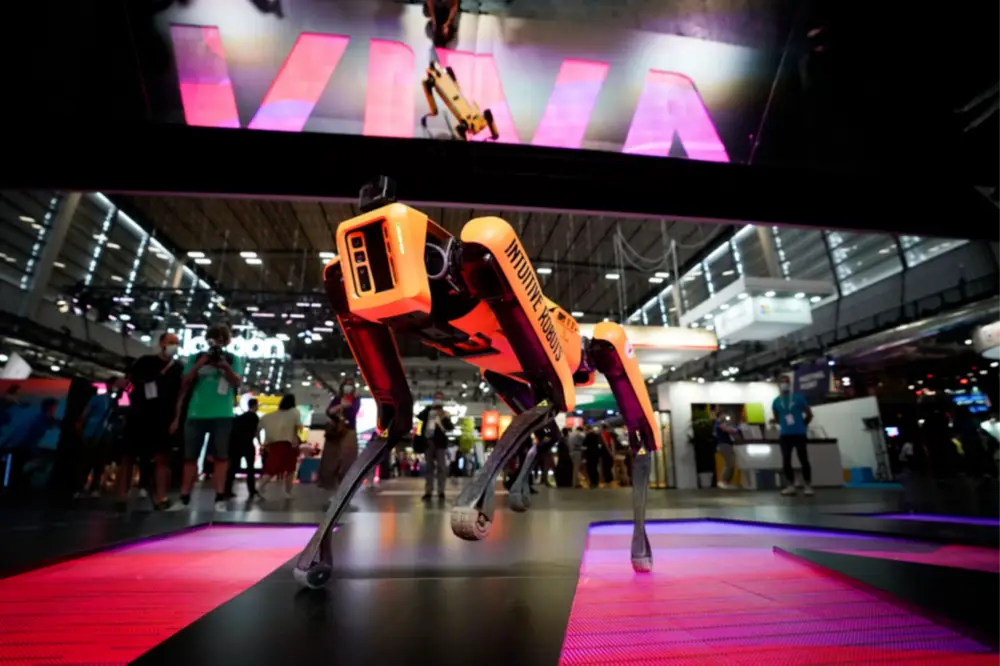The future, full of technological innovations, has already arrived. The exhibition VivaTech 2024, which took place in Paris, vividly demonstrated how the field of education is changing this year. Among the presented projects from around the world were both new educational platforms and interesting ideas on the use of artificial intelligence (AI) in education. Every state is in the global trend of developing modern technologies, and this is felt in every innovative project of the national stand presented at the exhibition.
The traditional education system, where one teaching method is applied to all students, is gradually becoming a thing of the past. Technologies now make it possible to create individual educational trajectories adapted to the needs of each student.
Also Read: BEFORE GOOGLE: OpenAI presents AI update for GPT-4
Nowadays, knowledge can be obtained anywhere and at any time, which is especially important for remote regions and countries with limited resources.
A revolution in school education: gamification and adaptive
Education is becoming increasingly interactive and personalized thanks to innovations such as gamification and adaptive learning. Against the background of the rapid development of technologies and the emergence of artificial intelligence in education, it turns into an exciting game where everyone can develop according to their own needs and talents.
Also Read: What is ChatGPT’s GPT, GPT 3.5, GPT 4?
Learning is a game. Today, the school faces strong competition from entertainment platforms such as TikTok and Minecraft, which attract the attention of students with interactive content. However, the school can use gamification as a powerful tool to make learning not only effective but also interesting. The gamification trend is already being actively implemented in education in various countries. Gamification enables students to master the material more effectively and develop interaction skills and creative thinking. Therefore, the use of games in education is a necessary step to attract the attention of schoolchildren and prepare them for life in the modern world, where interest is the key to learning.
An interesting discovery were the projects presented at VivaTech that work with big data for the personalization of learning. In today’s world, teachers are no longer the only source of knowledge; knowledge is now available everywhere and at all times. This is supported by tools such as ChatGPT, which can answer students’ questions, replacing search engines like Google.
Also Read: How many dollars is ChatGPT spending on training in information journalism?
Adaptive learning. The Spanish platform Smartick uses artificial intelligence to adapt educational materials to each student. The system analyzes data on student progress and suggests individual tasks to improve their skills. Research confirms that adaptive training increases the effectiveness of the education process, allowing each student to develop at their own pace.
Creation of personalized educational programs. The Chinese project Squirrel Al Learning uses AI to create personalized educational programs. The platform analyzes data about each student and offers tasks that correspond to their level of knowledge and needs. This approach helps to eliminate gaps in knowledge and increase success because each student has his own program with a certain set of educational materials, tasks, and numbers.
The teacher’s and the school’s future roles. In a world where artificial intelligence is the source of information, it is important to determine what role the teacher will play.
Also Read: Artificial Intelligence: These are the professions at risk due to AI technology
Today’s teacher is no longer the sole source of knowledge but directs students to a variety of sources, such as online courses, educational platforms, and artificial intelligence. In such a system, the teacher becomes a mentor, helping students use the available knowledge as efficiently as possible.
Why is school needed in the future if knowledge can be acquired online?
The development of soft skills, such as collaboration and communication, is the clear reason. Technology and online education provide access to knowledge, but it is the school that will create the environment where students can reach their potential.
Also Read: The Microsoft surface event was dominated by new artificial intelligence technology
Research shows that traditional distance learning alone is not very effective due to a lack of motivation and a loss of interest. Not every adult is able to maintain a high level of motivation during independent learning, let alone a child. Therefore, the school, whether distanced or face-to-face, should create an environment for the effective exchange of knowledge and opinions and the development of various soft skills necessary in adult life.
World trends in the education industry are reaching a new level thanks to the development of artificial intelligence. This is not just a technological advance; it is a philosophical breakthrough that overturns our understanding of learning, opening new horizons. Artificial intelligence is becoming the driving force behind change, penetrating all aspects of the educational process, from personalized learning to the automation of administrative tasks.
Also Read: Apple made a big announcement about the iPad at a small event


